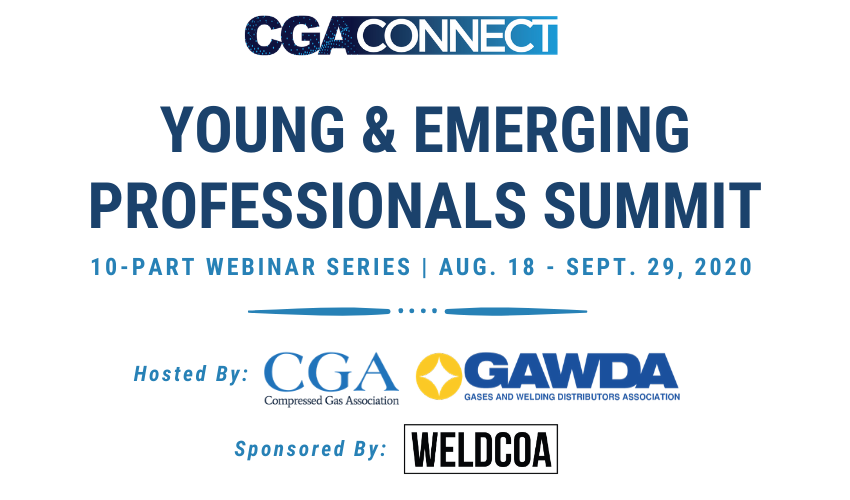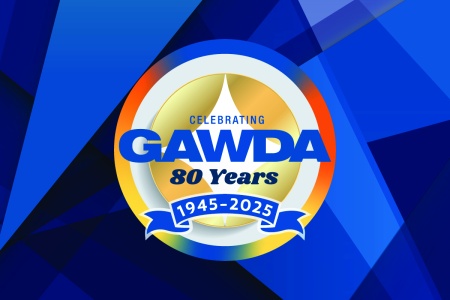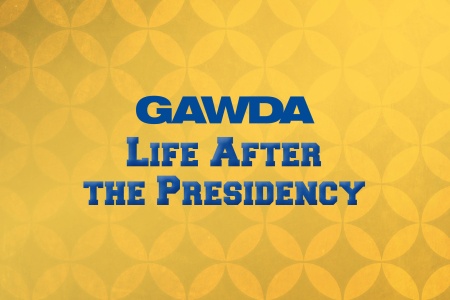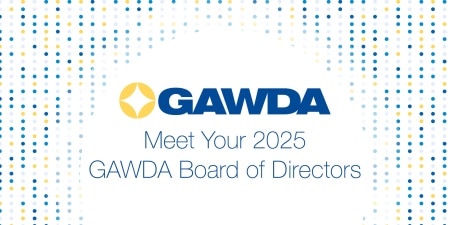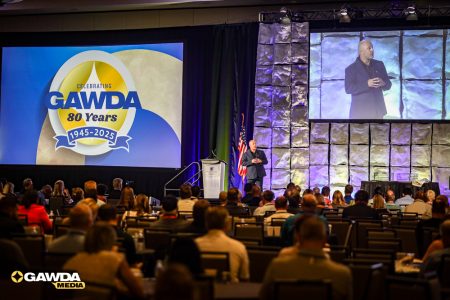Knowledge management and succession planning are both vital to the continued growth and success of our industry. According to data from the Bureau of Labor Statistics, more than one-third of the U.S. science and engineering labor force will turn over in the next 10 years. Coupled with economic growth, that retirement rate is projected to create more than 511,000 job openings in science and engineering fields. While the gases industry represents a small portion of the national figure, those statistics hold true for Compressed Gas Association (CGA) committee participants, as well as our industry at large.
As Hector Villarreal, President of Weldcoa, points out, “It’s estimated that 10,000 Baby Boomers are now turning 65 each day. By the year 2030, the entire Baby Boom generation will be 65 or older. While we may have experienced brain drain in our industry before, it’s now accelerated. We have all these knowledgeable people in senior positions, with many years of experience, who are walking out the door, and they’re taking their expertise with them. It’s essential that we find ways to address and prevent this knowledge loss.”
CGA & GAWDA Partner to Address Knowledge Loss Through Training
As an industry, we are fortunate to have many well-documented safety standards and guidelines. However, it is critical that the next generation have the opportunity to learn why those requirements were implemented. One of the most valuable assets of our companies is the collective knowledge gained through trial and experience. Yet, gaps left by workers who have spent decades in the profession are increasingly difficult to fill. Transitioning this knowledge must be a priority for all of us in the industry.
With that goal in mind, CGA and GAWDA partnered together to co-host an innovative virtual training series: the 2020 Young & Emerging Professionals Summit. This groundbreaking series of online events is designed to provide unparalleled learning opportunities for the compressed gas industry’s next generation of great safety thinkers and leaders. Sponsored by Weldcoa, the Summit consists of 10 webinars offered from mid-August through the end of September, and is free for all qualifying participants.
Individual webinars cover an exceptional lineup of educational topics, including: cylinder filling; oxygen safety; cylinder valves, pressure relief devices (PRDs), regulators, and connections; hydrogen; container filling (cryogenic liquefied gases); carbon dioxide; air separation unit pumps and compressors; and cylinder and valve failure analysis. These sessions focus on communicating the reasons for requirements in today’s safety standards, including lessons learned through incidents, near misses, and the personal experiences of speakers and panelists.
Each session features an hour-long presentation, followed by a moderated panel and open question and answer session with 3 to 4 subject matter experts.
The Summit will close out with a final session on how new participants can gain the most from their participation in CGA and GAWDA. The session will feature a joint presentation from Rich Gottwald, CGA President & CEO, and John Ospina, GAWDA Executive Director. Following the presentation, a panel discussion will be held with young professionals from both CGA and GAWDA who will provide insights on their experiences with participation in both associations as well as their thoughts on what the industry can do to attract and retain young professionals in the near future.
Summit attendance is limited to young and emerging professionals who work for member companies in good standing with CGA or GAWDA (in order to register through GAWDA, an individual’s company must participate in the CGA publications subscription program.) Young and emerging professionals are defined as those aged 45 years or younger, OR someone who is new to their area of industry operations.
As of late August, 650 emerging safety leaders from 90 companies across CGA’s and GAWDA’s membership had signed up to participate in the Summit.
Session one Highlights Strategies to Combat Knowledge Loss
On August 18, the Summit got off to a great start with Session one: “Succession Planning – Key Conversations, Combating Knowledge Loss, and Preparing for Advancement” with Dr. David Delong of Smart Workforce Strategies. Dr. Delong’s keynote presentation was followed by a panel discussion with seasoned industry experts Jack Finn (FIBA Technologies), Richard Pawulski (Air Liquide), Kelvin Dixon (Matheson), and Allison Earlbeck (Earlbeck Gases & Technologies), with Hector Villarreal serving as moderator.
During his keynote, Dr. Delong emphasized that overcoming generational differences can provide a source of competitive advantage.
He reviewed a number of critical knowledge transfer issues including succession planning, sustaining capabilities, tribal knowledge, historical/incident knowledge, and routine operations and customer knowledge. While present across many sectors, Dr. Delong suggested that the cost of critical knowledge loss poses a significant challenge to the compressed gases industry.
Finally, he shared three questions that can be asked to support a learning culture:
- Play: What did you learn this week?
- Purpose: What impact did you have?
- Potential: What do you want to learn next week?
During the panel discussion, participants were asked to share their thoughts and suggested approaches regarding a number of issues, including:
How is your company addressing training and development for your employees?
How do we attract a more diverse workforce to our industry, including more women and minorities?
What career development planning advice would you give to those seeking a more technical path to help them focus on what’s most important?
In response to the last question, one panelist said, “Innovation can come from the most surprising places. Nobody owns the patent on great ideas. You never know where they’re going to come from. You give someone a little freedom and the reward you get from that can be exceptional. I would suggest to younger people, don’t build your own walls, the world will do that for you. Go out, chase your passion, do what you’re good at, and see what happens.”
Session two Focuses on the Safe Operation of ASU Pumps & Compressors
On August 25, we held Session two, “Air Separation Unit (ASU) Pumps and Compressors,” with long time industry safety expert John Bernard as speaker. Panelists included John Bernard (CGA consultant), Dr. John Somavarapu (Air Liquide), and Patrick Smith (Air Products and Chemicals), with Anu George (Air Liquide) serving as moderator.
John Bernard, an expert with more than 40 years of industry experience, provided attendees with an overview of requirements for the safe operation of liquid oxygen pumps and compressors in ASUs.
He advised listeners that with the evolution of liquid oxygen pump design and configuration leading to higher pressures and higher flows, liquid oxygen pump safe operation needs to be a complete package of design, material selection, operation, and maintenance. Yet, despite multiple precautions, hazards can still exist.
Regarding ASU compressors, Bernard acknowledged that oxygen compressor fires can occur, making it critical to understand potential causes, common factors in compressor fires, factors that can influence the ignition and severity of fires, and, most importantly, key practices for the safe operation of ASU compressors.
At the end of the panel discussion, panelists were asked “What is one thing you wish you had known when you were new to ASU operations?” One panelist advised, “Learn as much as you can by reading books and safety standards, listening to people that have been around a long time, and participating as much as you can in field activities. I really do think you learn a lot more being out in the field than you do being in the office.” Another panelist said the one thing they wished they had known was, “How the smallest thing can make a system unsafe.”
Session three Provides an Invaluable “Show and Tell” on the Basics of Cylinder Filling
Filmed live from the Weldcoa Innovation Center on August 27, Session three, “Cylinder Filling: Industrial and Medical Gases,” featured Weldcoa Field Technician & Customer Support Specialist Kevin Klotz, who began his career learning how to weld and worked his way into industrial gas filling (he’s also the third generation in his family to work in the industry.)
During his presentation, Klotz covered some of the basics of industrial and medical filling, including prefill inspections, filling manifold styles, filling techniques, and post-fill inspections.
Session three panelists included Kevin Klotz and Don Renner (Weldcoa), John Willenbrock (CGA), Terran Bergdale (A-OX Welding Supply Company), and Rob Stauder (Linde), with Zachary Fowler (Praxair Distribution, a member of Linde) serving as session moderator.
When asked, “What are your best practices for training new employees on the fill process?” One panelist said they operate by the motto, “See one, do one, teach one,” meaning that they’ll train a new employee until the trainee masters the new procedure to the point that they can teach it to the instructor.
In addition, panelists were asked, “How has new technology changed the way the industry manages safety and risk?” One panelist responded, “The increased use of engineered solutions built-in to the filling systems and alarms, as well as the use of atmospheric monitors in filling areas, have led to better management of risk and increased safety.” Another panelist added, “The use of residual pressure valves (RPVs) to assist in making sure the cylinder is not contaminated during fill and methodologies to keep a cylinder’s temperature down, such as using water baths, have also improved safety.”
The CGA & GAWDA 2020 Young & Emerging Professionals Summit ran through September 29. Registration closes two days before each event date. For more information and a full calendar of Summit sessions, see https://bit.ly/2020YPSummit.



